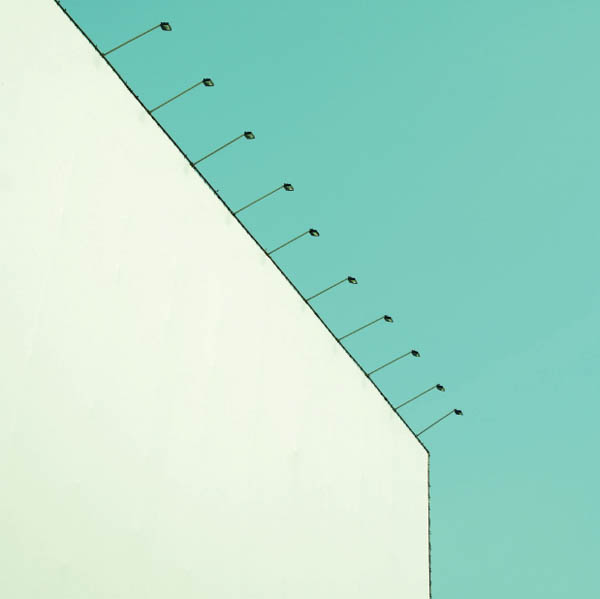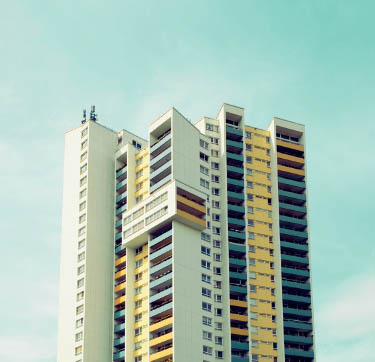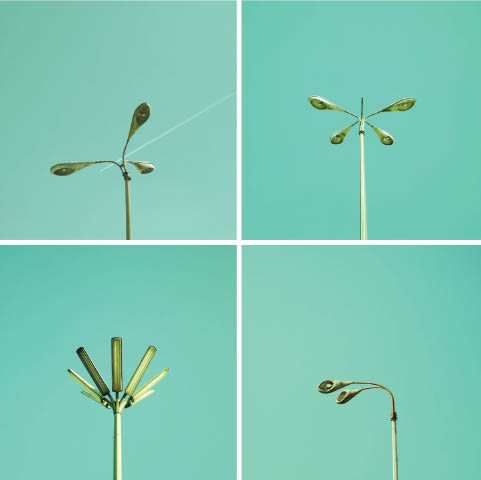In 2008, Berlin-based artist Matthias Heiderich received his university degree in computational linguistics and phonetics. After seven years in university, and a lot of mathematics, logic, and programming, he wanted to do something different—so he bought his first camera, and in 2010 he became a full-time artist. His first print magazine feature was in Grafik from London, a magazine that he often read himself—he was thrilled! He has gone on to exhibit all over Berlin, and has begun showing internationally.
JC—What a jump, from computational linguistics to photography! How did you make the transition?
MH—To train my photography and photo-editing skills, I completed internships and worked as a photo editor and event photographer. I learned a lot from colleagues during that time and spent a lot of time teaching myself the basics of photography. Photography is something I really enjoy, but I can’t be sure I will always be able to make a living from it, so I guess it’s good to have a university degree in another field.
JC—Do you now consider yourself an artist?
MH—It’s still new to me to think of myself that way, but I have felt like an artist during exhibitions—when I see my own pictures up on a wall, people standing in front of them discussing and asking questions. The first time this happened, I was twenty-eight years old.
JC—Your view of the world is spectacular—do you keep your camera with you at all times, just in case you find the perfect rooftop?
MH—I have my phone camera with me all the time—that allows me to take a quick shot, then I can come back with a “real” camera later. Whenever I have time to go outside, I have one of my professional cameras with me. It really can drive me crazy to see beautiful things without being able to capture them. One of my recurring nightmares is about standing in front of a really weird building, and not being able to remember where I put my camera. I don’t want this to happen in real life!
JC—What inspires you?
MH—Architecture, electronic music, and photography are my main sources of inspiration. Luckily, in Berlin I can find plenty of all of this. I also find inspiration online. I love to browse blogs, portfolios, bookmark sites, etc. Seeing the work of other photographers inspires me, and helps me evaluate my own work. I’m sure it was mainly the Internet that brought me here.
JC—What are some of your favorite spots to visit on the Internet?
MH—Blog.iso50.com (always inspiring); networkawesome.com (I love the documentary section); triangletriangle.com (a collection of some of the best portfolios); butdoesitfloat.com; bldgwlf.com; ffffound.com.
There are also some really good Tumblrs, Pinterest boards, and Behance profiles out there—too many to mention, actually. Unfortunately, I easily forget time and space as soon as I start procrastinating. But I guess I’m allowed to call it “research” in this case.
JC—Is there a specific artist that you admire/envy/are jealous of?
MH—I recently saw a documentary on Andreas Gursky. I must admit, I became jealous when I saw his work space, his equipment, and what his general working day is like. Being able to travel the world with the best cameras ever made—and making a living from that—is definitely a dream scenario for me. Yes, I’m definitely jealous.
JC—Do you ever equate your self-worth with your artistic successes?
MH—The answer is yes—although I know this is a very bad idea. Artistic jobs are more vulnerable to ups and downs than many other jobs, and it might become a problem if these ups and downs are always linked to one’s self-worth. Sure, success is an ego boost, but the opposite of success shouldn’t kill you, your relationship, friendships, etc. I hope one day I’m able adopt this myself. In the meantime I keep repeating my mantra, a quote by Charles Horton Cooley: “An artist cannot fail; it is a success to be one.”
JC—Does your inner critic ever have anything to say?
MH—My inner critic is a loud talker. It’s almost impossible to get it to shut up or to ignore it. Whenever I work on something, it’s like one of those small devils on my shoulder. It really gets to me—I often only see the mistakes in my photographs, and not the positive parts. Talking with close friends often helps me to direct my thoughts in a less destructive direction, so that I can see what’s good, and what could be better.
JC—What causes your creative blocks? How do you push through?
MH—For me, a creative block is a sign of overthinking. When my brain feels blocked, I try to distract it by doing something completely different—usually that’s riding my bike or swimming. A positive side effect is that I’ve become much more sporty lately!

I keep repeating my mantra, a quote by Charles Horton Cooley: “An artist cannot fail; it is a success to be one.”

One of my recurring nightmares is about standing in front of a really weird building, and not being able to remember where I put my camera.
